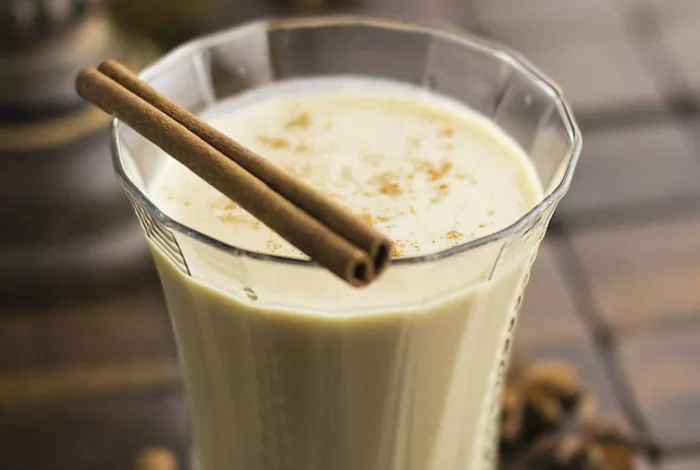In the realm of nutrition, the quest for the “best fruits” is a perennial one. Fruits, with their vibrant colors, exquisite flavors, and an array of essential nutrients, have always been a cornerstone of a healthy diet. Whether you’re aiming to boost your immunity, manage your weight, or simply savor the taste of nature’s candy, the right selection of fruits can play a pivotal role in achieving your health and wellness goals. In this article, we embark on a journey through the orchards and groves of nature, uncovering the best fruits that offer a bounty of health benefits.
1.Nutrient Powerhouses
When it comes to the best fruits for your health, one criterion that stands out is their nutritional density. Nutrient-dense fruits are those that pack a powerful punch of vitamins, minerals, and antioxidants while being relatively low in calories. These fruits are essential for maintaining overall well-being and preventing chronic diseases. Let’s explore some of the best fruits that fall into this category.
1.1 Blueberries – Tiny Titans of Antioxidants
Blueberries are often hailed as one of the best fruits due to their rich antioxidant content. These small, but mighty, berries are packed with vitamins C and K, as well as manganese. What sets them apart, however, are their potent phytochemicals, such as anthocyanins, which offer protection against oxidative stress and inflammation, making blueberries a top choice for heart health and brain function.
1.2 Oranges – A Citrus Classic
Oranges, the citrus classic, are revered as one of the best fruits for their high vitamin C content. This vitamin not only bolsters the immune system but also promotes collagen formation for healthy skin and aids in the absorption of iron from plant-based foods. Oranges also provide a good dose of fiber, which supports digestive health and helps manage blood sugar levels.
1.3 Kaleidoscope of Berries – Strawberries, Raspberries, and Blackberries
Strawberries, raspberries, and blackberries are part of the colorful spectrum of berries that are known to be some of the best fruits for health. They are rich in fiber, vitamins, and antioxidants, particularly vitamin C and flavonoids. These fruits have been associated with reduced risk of chronic diseases, improved heart health, and even potential cognitive benefits.
1.4 Kiwifruit – A Vitamin C Powerhouse
Kiwifruit, with its unique green flesh and tiny black seeds, is a vitamin C powerhouse. Just one kiwifruit provides more than the daily recommended intake of vitamin C. In addition to its immune-boosting properties, kiwifruit is also a good source of vitamin K and dietary fiber, promoting both cardiovascular and digestive health.
1.5 Apples – An Apple a Day
Apples are often celebrated as one of the best fruits, and for a good reason. They’re a great source of dietary fiber, particularly soluble fiber called pectin, which can help manage cholesterol levels. Apples also contain various antioxidants and are associated with a reduced risk of chronic diseases, making them a simple yet effective choice for overall health.
2.Fiber and Digestive Health
Fiber is a crucial component of a healthy diet, and the best fruits for promoting digestive health are often those rich in this dietary fiber. Fiber aids in regular bowel movements, prevents constipation, and supports a healthy gut microbiome. Let’s delve into the world of fibrous fruits.
2.1 Bananas – Nature’s Energy Bar
Bananas are renowned for their high potassium content, which helps regulate blood pressure. However, they are also one of the best fruits for fiber. This fiber supports digestive health and helps maintain regular bowel movements. Bananas are an excellent choice for a pre- or post-workout snack, providing a quick energy boost.
2.2 Papayas – Tropical Digestive Delight
Papayas are tropical gems that offer a wealth of benefits. They contain an enzyme called papain, which aids in digestion and can alleviate symptoms of indigestion. The fiber content in papayas also supports a healthy gut and helps in maintaining a regular and healthy digestive system.
2.3 Prunes – Nature’s Natural Laxative
Prunes, or dried plums, are well-known for their natural laxative effect, making them a top choice for maintaining regularity. They are a concentrated source of dietary fiber, sorbitol, and phenolic compounds that promote digestive health by preventing constipation and supporting a healthy gut microbiome.
2.4 Pears – Sweet and Fibrous
Pears are both sweet and fibrous, making them one of the best fruits for digestive health. The fiber in pears, particularly soluble fiber, can help regulate bowel movements and manage conditions like irritable bowel syndrome (IBS). Their high water content also contributes to hydration, which is vital for digestive regularity.
3. Best Fruits for Heart Health
Maintaining a healthy heart is a primary concern for many, and certain fruits have earned the title of “best fruits” for heart health due to their specific attributes. These fruits play a significant role in reducing the risk of heart disease and promoting cardiovascular well-being.
3.1 Avocado – The Heart-Healthy Fat
While not a traditional fruit, avocados are often included in discussions of the best fruits for heart health due to their monounsaturated fats. These healthy fats help reduce bad cholesterol levels, lowering the risk of heart disease. Avocados are also packed with potassium, which further supports cardiovascular health.
3.2 Grapes – Resveratrol for the Heart
Grapes, especially red and purple varieties, contain a compound called resveratrol, known for its potential heart-protective effects. Resveratrol can help reduce blood pressure and promote healthy blood vessels. Additionally, grapes are a source of antioxidants and dietary fiber that contribute to heart health.
3.3 Cherries – Red Bounty of Heart Health
Cherries, particularly tart cherries, are known for their heart-healthy properties. They contain anthocyanins and quercetin, which can help reduce inflammation and oxidative stress. These compounds contribute to improved heart health by reducing the risk of heart disease and promoting healthy blood vessels.
3.4 Citrus Fruits – Vitamin C and Heart Protection
Citrus fruits, such as oranges, lemons, and grapefruits, are loaded with vitamin C and flavonoids. These antioxidants can reduce inflammation, lower blood pressure, and improve cholesterol profiles, making them some of the best fruits for heart health.
3.5 Fatty Fish – An Honorable Mention
Although not a fruit, fatty fish like salmon and mackerel are worth mentioning in the context of heart health. They are rich in omega-3 fatty acids, which reduce the risk of heart disease by lowering triglycerides, improving blood vessel function, and reducing inflammation.
4. Weight Management and Satiety
For individuals aiming to manage their weight, the best fruits are those that not only provide essential nutrients but also promote a feeling of fullness and satisfaction. These fruits can be valuable components of a weight-conscious diet.
4.1 Apples (Again) – The Snack for Satiety
Apples are worth revisiting in the context of weight management. They are a perfect snack for those looking to control their weight because they are low in calories and high in fiber. The fiber in apples contributes to a sense of fullness, making them an excellent choice for curbing cravings between meals.
4.2 Berries (Again) – Satisfying and Low-Calorie
Berries, such as strawberries, raspberries, and blackberries, are not only rich in antioxidants but also low in calories. This combination makes them ideal for those seeking to manage their weight. The fiber and water content in berries contribute to a feeling of fullness without packing on excess calories.
4.3 Watermelon – High Water Content
Watermelon is aptly named because it consists of over 90% water, making it one of the most hydrating fruits available. Its high water content can promote satiety, especially during hot summer days. Watermelon is also relatively low in calories, making it a refreshing choice for those watching their weight.
4.4 Grapefruit – A Metabolism Booster
Grapefruit is known for its role in weight management. Research suggests that consuming grapefruit before meals can aid in weight loss. It may be due to compounds in grapefruit that help regulate blood sugar levels and improve insulin sensitivity. This can reduce hunger and promote weight loss.
4.5 Pomegranates – Slow Eating, More Satiety
Pomegranates are unique among fruits because they require a bit of effort to eat, as the seeds need to be extracted from the arils. This process can slow down consumption, allowing for better satiety signals to reach the brain. Additionally, pomegranates are rich in antioxidants, contributing to overall health during a weight management journey.
5. Immune Boosting Fruits
In an era where health and immunity are paramount concerns, certain fruits are hailed as the best for boosting the immune system. These fruits are rich in vitamins, minerals, and antioxidants that fortify the body’s defense mechanisms.
5.1 Citrus Fruits (Again) – Vitamin C Galore
Citrus fruits, as mentioned earlier, are celebrated for their high vitamin C content. Vitamin C is a cornerstone of a robust immune system. It enhances the production of white blood cells, which are vital in fighting off infections. Regular consumption of citrus fruits can provide ongoing support to the immune system.
5.2 Kiwifruit (Again) – More Vitamin C and Beyond
Kiwifruit is not just a vitamin C powerhouse; it also contains other essential nutrients such as vitamin K, vitamin E, and folate, which contribute to overall health and immune function. The combination of vitamins and antioxidants in kiwifruit makes it an excellent choice for immune support.
5.3 Guava – Vitamin C and More
Guava is another fruit rich in vitamin C and deserves its place among the best fruits for immunity. It provides more vitamin C than many citrus fruits and also contains other nutrients like vitamin A and dietary fiber, which support overall health and the immune system.
5.4 Elderberries – A Potent Immune Booster
Elderberries have gained attention for their potential to boost the immune system. They are rich in antioxidants, particularly anthocyanins, which have been shown to enhance immune function. Elderberry supplements and syrups are frequently used during cold and flu seasons for their immune-boosting properties.
5.5 Ginger – The Immune-Supporting Spice
Ginger, while not a fruit, is a noteworthy addition to this list due to its immune-supporting properties. It contains bioactive compounds, such as gingerol, which have anti-inflammatory and antioxidant effects. Ginger is often used to soothe sore throats and reduce the severity of cold and flu symptoms.
6. Antioxidant-Rich Fruits
Antioxidants are compounds that protect the body from oxidative stress and damage caused by free radicals. The best fruits for antioxidant content can help prevent chronic diseases and slow down the aging process.
6.1 Berries (Once Again) – A Treasure Trove of Antioxidants
Berries, including blueberries, strawberries, raspberries, and blackberries, are some of the best fruits for antioxidants. They are packed with compounds like anthocyanins and quercetin, which neutralize free radicals and reduce oxidative stress. Regular consumption of berries can contribute to long-term health and vitality.
6.2 Pomegranates (Again) – A Symbol of Abundance
Pomegranates are another symbol of antioxidant abundance. Their rich, red arils are loaded with polyphenols, which have potent antioxidant properties. Pomegranate juice, in particular, is known for its high antioxidant content and potential health benefits, such as reducing blood pressure and improving heart health.
6.3 Cranberries – Beyond Urinary Health
Cranberries are well-known for their role in urinary tract health, but they are also a rich source of antioxidants. These antioxidants protect the body against oxidative stress, reducing the risk of chronic diseases. Consuming cranberries in various forms, such as juice or dried cranberries, can be an excellent way to harness their antioxidant benefits.
6.4 Acai Berries – The Amazonian Superfood
Acai berries, native to the Amazon rainforest, have gained recognition as a superfood due to their exceptionally high antioxidant content. They are rich in anthocyanins, similar to those found in red wine, and have been associated with improved heart health and reduced oxidative stress.
6.5 Spinach – Leafy Green Antioxidant Powerhouse
While spinach is not a fruit, it deserves a place in the discussion of antioxidant-rich foods. This leafy green is packed with a variety of antioxidants, including vitamin C, vitamin E, and beta-carotene. It is a versatile ingredient in salads, smoothies, and cooked dishes, making it easy to incorporate into a diet rich in antioxidants.
Conclusion
The pursuit of the “best fruits” is a noble endeavor, as these natural wonders offer a plethora of health benefits that can cater to various aspects of well-being. Whether you’re aiming to boost your immune system, maintain a healthy heart, manage your weight, support skin health, or enhance cognitive function, the world of fruits provides a diverse array of options to choose from.
























